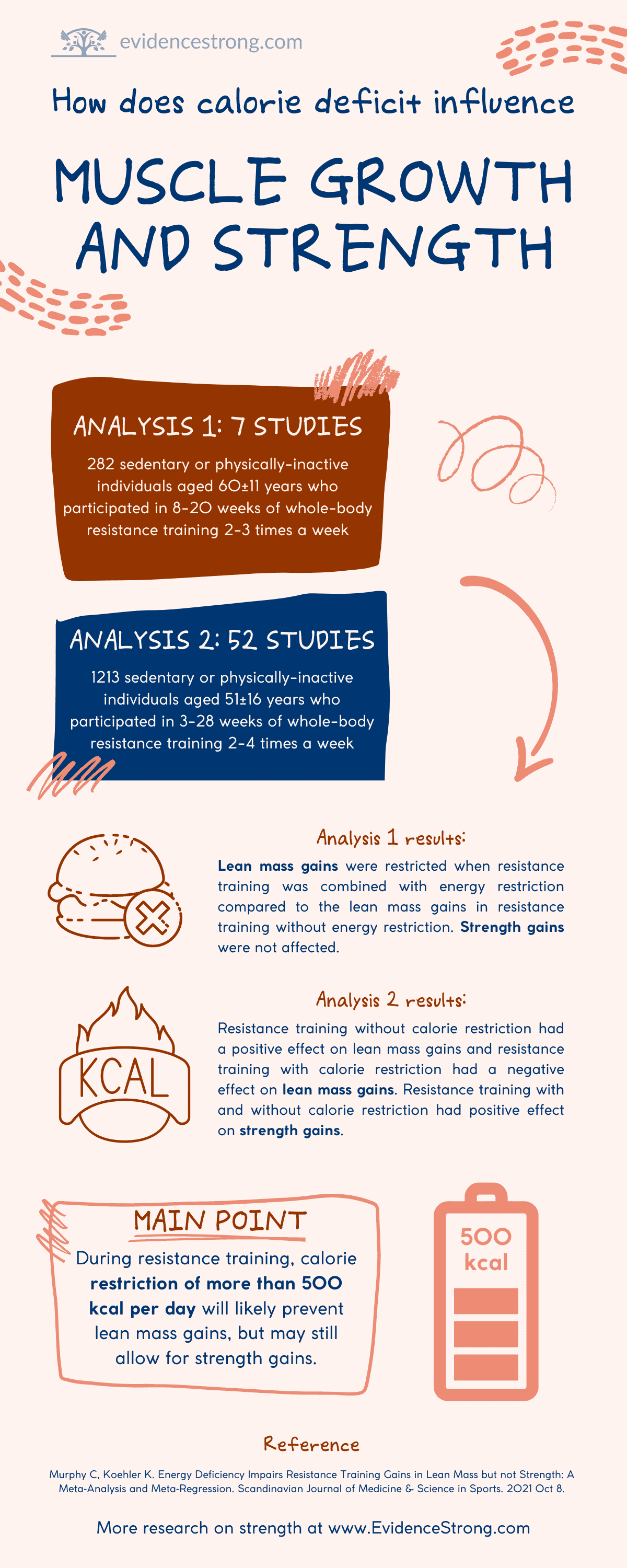Summary of a review looking at how calorie restriction affects resistance training muscle and strength gains.
Who
Two analysis:
Analysis 1: 282 sedentary or physically-inactive individuals aged 60±11 years who participated in 8-20 weeks of whole-body resistance training 2-3 times a week (World).
Analysis 2: 1213 sedentary or physically-inactive individuals aged 51±16 years who participated in 3-28 weeks of whole-body resistance training 2-4 times a week (World).
1RM – one repetition maximum, the maximal weight lifter for 1 repetition
Design
Review with meta-analysis of studies that directly compared resistance training with or without energy restriction (analysis 1); or studies matched for age and sex where one study focused on resistance training only and the other on resistance training with energy deficit (analysis 2).
Outcome measures
- lean mass gains
- strength gains
Main results
- Analysis 1: 7 studies (6 in women, 1 in women and men) compared the effects of resistance training with and without energy restriction. Lean mass gains were reduced if calories were restricted, but strength gains were not.
- Analysis 2: 52 studies (24 in women, 10 in men, 18 in women and men) showed a positive effect on lean mass gains with resistance training without calorie restriction and a negative effect with calorie restriction. Both resistance training with and without calorie restriction had positive effect on strength gains.
- How much of a deficit is negatively impacting lean mass gains:
- energy deficit of ~500 kcal per day will result in no lean mass gains.
Take home message
Original article
Murphy C, Koehler K. Energy Deficiency Impairs Resistance Training Gains in Lean Mass but not Strength: A Meta‐Analysis and Meta‐Regression. Scandinavian Journal of Medicine & Science in Sports. 2021 Oct 8.
You might want to read next
Fat loss for resistance-trained athletes. What is effective?
Ketogenic diet for weight loss and performance in powerlifting and Olympic weightlifting
